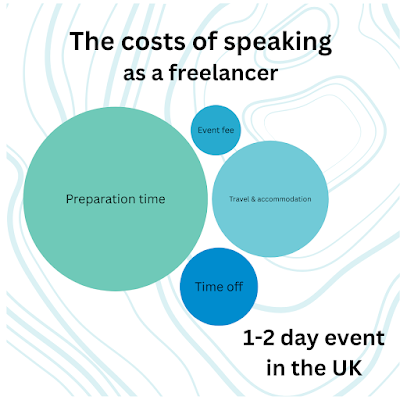Euralex 2024, Croatia
After 25 years of working in
dictionaries, I recently I attended my first ever lexicography conference, the
Euralex Conference held in Cavtat, Croatia (8-12 Oct). That might seem a bit surprising,
but comes down to a number of factors about the nature of lexicography and
lexicography conferences.
Why was it my first lexicography conference?
Primarily, it's because the kind of lexicography
I do, working as a freelancer for UK commercial dictionary publishers is a bit
of an anomaly in the world of lexicography. In many countries and for many languages other than English, lexicography is something carried out largely by academics
attached to universities and language institutes, and funded by governments and
grants from places like the EU keen to support those countries' linguistic and cultural heritage. So, many of the conference presentations were
much less about the kind of practical, jobbing lexicography that I do and
instead were papers reporting on academic research, often in very niche,
theoretical areas.
At the reception on the first evening, I found myself chatting to
Dirk Geeraerts, a very eminent name in the field and one of the plenary
speakers - whose name, thankfully, I did recognize despite my incredibly patchy
knowledge of academic lexicography! I was explaining my background and
commenting that I didn't even understand many of the talk titles in the
programme. He responded that it was probably all stuff I did know about but I
just didn't recognize the terminology. He turned out to be spot on.

Not a bad spot for a coffee break!
So, why was I there?
Unlike the ELT conferences I typically go to, there was no chance of me being sponsored by a publisher to speak and there were almost no publishing contacts there for me to network with and potentially pick up new work. All reasons why, as a freelance lexicographer working on commercial dictionaries, I'd never been to a lexicography conference before. My "in" came, instead, via my role with the AS Hornby Dictionary Research Awards (ASHDRA), which are, as the name suggests, directly involved in dictionary research. The Hornby Trust was one of the conference sponsors, they sponsored the Hornby Lecture, this year by the fabulous Kory Stamper, and the current ASHDRA awardees presented their research (remotely online) in a slot at the event which, this year, I chaired.
Kory Stamper giving the Hornby Lecture
Was it useful?
In a very general sense, it was useful to give me a feel for the wider field. I'd been kind of aware of the differences I mentioned above, but meeting lexicographers and researchers from other countries and languages has crystallized just how different their worlds are from mine.
On a more personal level, I met lots of interesting people and it was been fun getting into some incredibly nerdy, niche conversations about the intricacies of dictionary compilation, corpus tools, and, inevitably, the impact of AI and LLMs on the field. Most of the new contacts I've made are unlikely to lead to future work, just because they work in such very different arenas, but one or two could potentially result in the odd offshoot which could be interesting.
Good to meet the team behind Sketch Engine, the corpus software I use.
As most of my trip was self-funded, it was an incredibly costly week. I decided to go at the start of the year when work was more stable and my finances were less precarious. More recently, it's felt like an outlay I could ill afford (and one which came out of my personal savings), but seeing as it was all booked, there was no point in feeling resentful and I tried to draw the positives out of it. Not least of those was the opportunity to visit beautiful Croatia. As is often the case with conferences, I spent much of my time inside windowless conference rooms, but I did have a free day at the start of the week to visit Dubrovnik and I grabbed a free afternoon to swim in the warm, crystal-clear waters of the Adriatic, so I really mustn't grumble!
 |
| Dubrovnik Old Town |
 |
| The Adam Kilgarriff Memorial hike |
Labels: ASHDRA, conferences, Euralex 2024, lexicography










